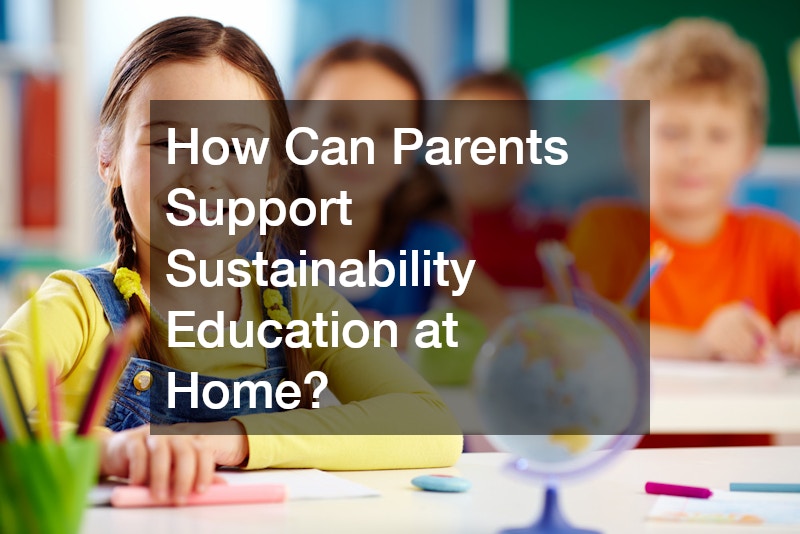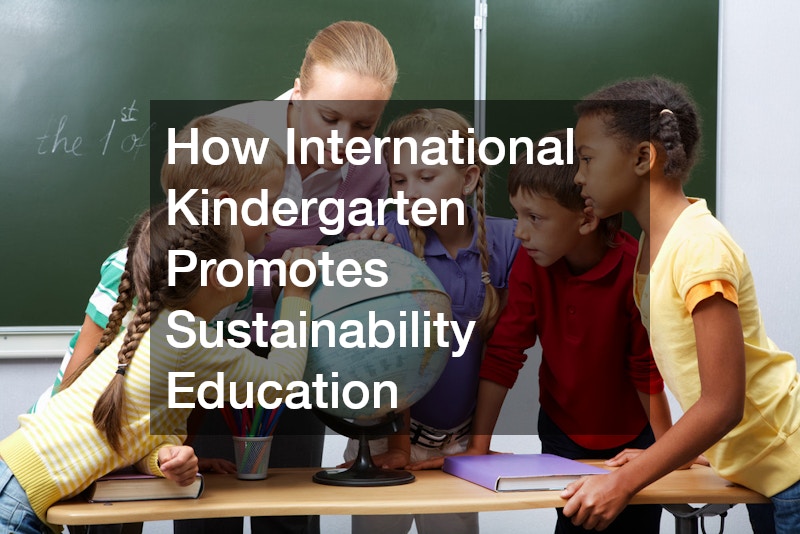Explore the critical role that international kindergartens play in promoting sustainability education from an early age. This article delves into the methods and impacts of integrating sustainable practices in early childhood education across the globe.
What Role Does an International Kindergarten Play in Sustainability Education?
Importance of Early Education in Sustainability
Early childhood education is pivotal in laying the groundwork for sustainable practices throughout life. Children who learn about sustainability early on are more likely to adopt sustainable behaviors as adults.
International kindergartens provide a unique opportunity to introduce diverse perspectives on sustainability. These schools often incorporate elements of global awareness, emphasizing the interconnectedness of worldwide communities.
By embedding sustainability in the curriculum, kindergartens help shape responsible citizens from a young age. This foundation encourages students to grow into adults who prioritize environmental consciousness and sustainable choices.
Global Impact of Sustainable Practices in Kindergartens
Kindergartens around the world contribute to sustainability goals by nurturing environmentally conscious children. These early interventions can ripple throughout communities, creating a broader impact.
Sustainability education in young children enhances their ability to think critically about environmental issues. As they grow, these children can influence their peers and families, further promoting sustainable living.
Global collaboration among international kindergartens leads to the sharing and improvement of sustainable teaching methods. This collaboration helps develop innovative educational practices that benefit children worldwide.
How Do Kindergarten Curricula Integrate Sustainability?
Incorporating Environmental Education in Daily Activities
Kindergartens weave sustainability into everyday classroom activities that teach children the importance of protecting the environment. Activities such as recycling projects, gardening, and nature walks introduce environmental concepts in an engaging way.
Through play-based learning, children explore elements of nature and understand their roles in preserving ecosystems. This hands-on approach fosters curiosity and respect for the natural world.
Teachers use creative storytelling to relay environmental stories and challenges, inspiring young minds to think about solutions. These narratives help children connect emotionally to environmental responsibilities.
Collaboration with Environmental Organizations
Partnering with environmental NGOs enriches kindergarten curricula by providing expertise and resources. These collaborations enable schools to implement robust environmental programs that might otherwise be out of reach.
Guest speakers from environmental organizations can visit classrooms to share real-world sustainability experiences. Such interactions expose children to practical applications of their learning.
NGOs may offer educational materials and workshops that align with kindergarten sustainability goals. This support allows schools to enhance their lesson plans with comprehensive, professional insights.
What Are the Benefits of Teaching Sustainability at a Young Age?
Lifelong Positive Behavior and Attitudes
Instilling sustainable habits early in life can result in lasting behavior changes that benefit individuals and communities. Children taught about sustainability are more apt to make environmentally sound choices as they mature.
These early lessons lead to the development of positive attitudes towards the environment, reinforcing the importance of sustainable practices. Children who appreciate natural resources are less likely to take them for granted in the future.
Researchers have found that sustainability education in kindergarten contributes to increased environmental stewardship in adulthood. Each generation trained in sustainability can significantly impact ecological preservation.
Enhancing Children’s Cognitive and Social Skills
Sustainability education in kindergartens enhances critical thinking, creativity, and cooperation among young learners. The curriculum promotes problem-solving skills as children explore environmental challenges and solutions.
Group activities centered around sustainability foster collaboration and social interaction among students. Working together on environmental projects helps children develop communication and teamwork skills.
The classroom environment becomes a microcosm where children practice essential life skills within a sustainability context. These experiences are fundamental in building well-rounded, socially conscious individuals.
What Challenges Do Educators Face in Implementing Sustainability Education?
Lack of Resources and Training
Implementing sustainability education often faces challenges such as a lack of resources and training for educators. Many schools struggle to provide the necessary materials for comprehensive environmental lessons.
Insufficient professional development opportunities can hinder teachers’ ability to teach sustainability effectively. Access to ongoing training is critical for educators to stay updated with the latest sustainability practices.
Support from education departments and community organizations is needed to supply kindergartens with the tools and knowledge required for effective sustainability education.
Cultural and Systemic Barriers
Cultural differences and systemic issues pose challenges in implementing sustainability education globally. Diverse sociocultural perspectives can influence the integration of sustainability into curricula.
Some educational systems may not prioritize sustainability, resulting in a lack of inclusion in formal education policies. Advocacy is necessary to elevate the importance of environmental education in various national frameworks.
Cross-cultural understanding and tailored approaches can help overcome these barriers, ensuring that sustainability education is relevant and accessible in different regions.
How Can Parents Support Sustainability Education at Home?
Creating a Sustainable Environment at Home
Parents play a crucial role in reinforcing sustainability concepts learned in kindergarten by creating a sustainable environment at home. Simple actions like reducing waste and conserving energy can demonstrate sustainable living in practice.
Involving children in household sustainability initiatives, such as composting or choosing eco-friendly products, complements school learning. These activities demonstrate how individual actions contribute to larger environmental goals.
Family discussions about environmental topics can further instill sustainable values, making children feel part of the solution. Open dialogue encourages children to express their ideas and take ownership of their eco-friendly behaviors.
Involving Children in Family Sustainable Practices
Including children in sustainable practices at home helps solidify their understanding of environmental responsibility. Participation in family activities like gardening or recycling enhances their practical knowledge of sustainability.
Parents can initiate small projects or challenges, such as a family ‘green day,’ where everyone engages in eco-friendly actions. These practices make sustainability an exciting part of everyday life.
Role modeling is crucial; children learn by observing their parents’ sustainable actions. By witnessing consistent ecological behaviors, children can realize the importance and impact of these habits.





